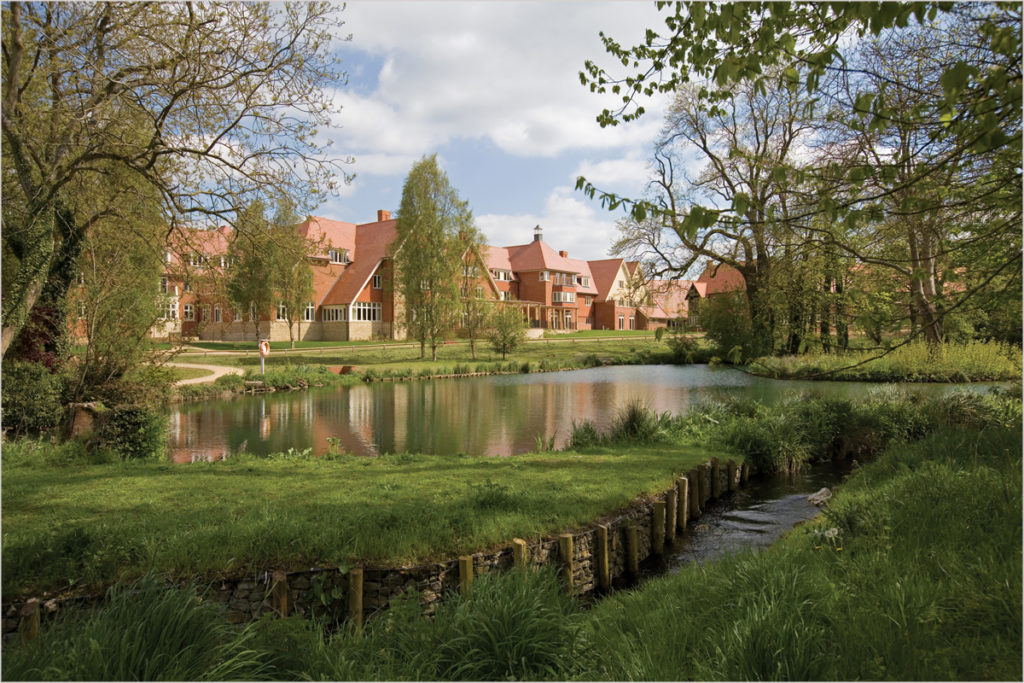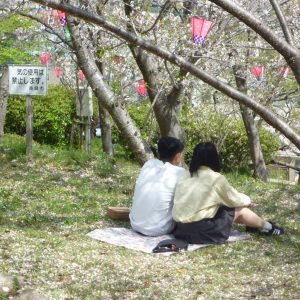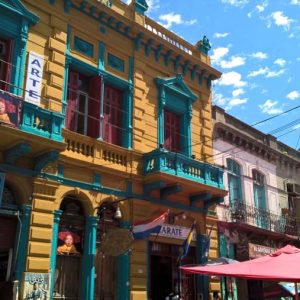It was a normal Friday morning at Silver Towers when the phone went with one of those calls you hope never to receive. My mother had had a serious fall at home and spent two very uncomfortable and cold nights on the floor before finally raising the alarm. When I say raising the alarm, she had inched her way to a telephone and called me at the office. Despite having had no food or water for the best part of 40 hours, and experiencing serious dehydration and severe bruising, she decided in her inimitable style that she wouldn’t call 999 as …“it wasn’t really an emergency”.
Needless to say, after a frantic dash across London to the home counties, a break and entry technique which would have impressed even the most experienced domestic burglar, I immediately called an ambulance, and the paramedics arrived within minutes to take charge of the situation and an admission to the local A&E as a matter of urgency.
Fast forward a week, and my mother emerged from hospital, very frail and in no fit condition to return to her home. What was needed was convalescence and respite in an environment where she could take time to relax and recover but, critically, with professional care on hand.
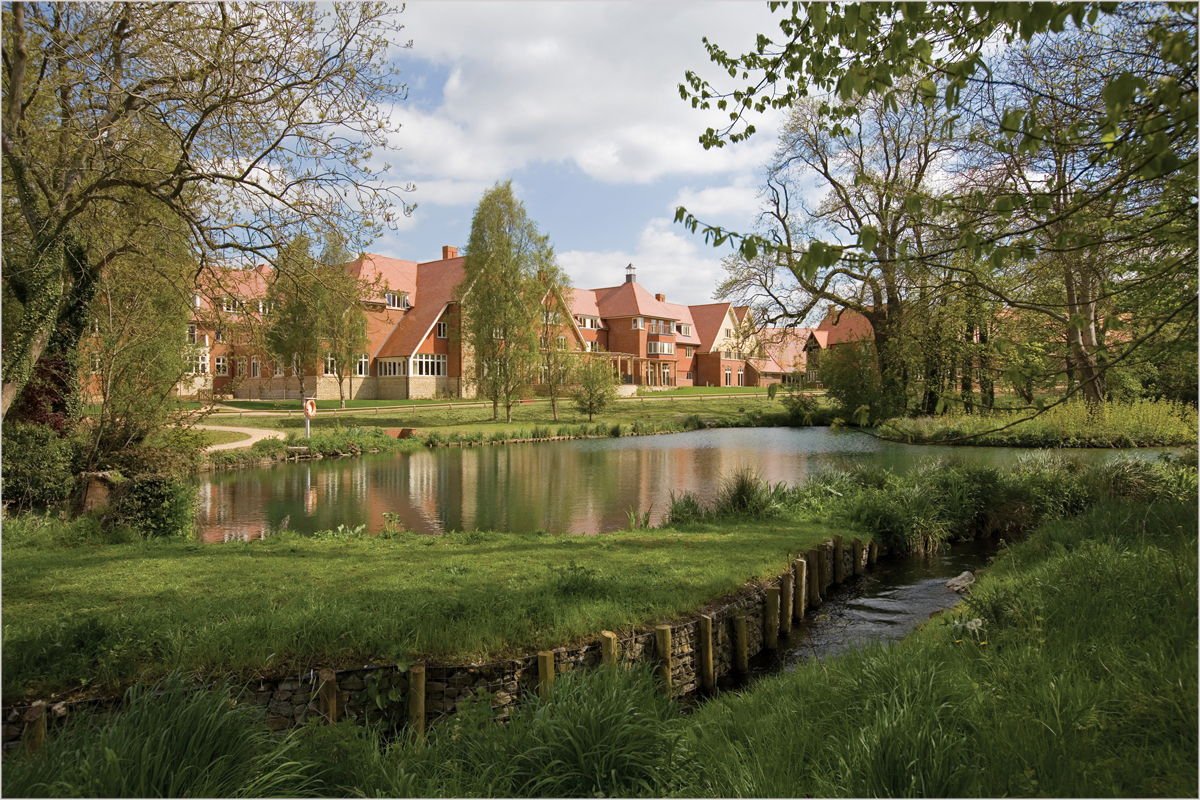 And this is where Richmond Retreats came magnificently to the rescue. It’s a simple but brilliant concept with which I was familiar through our work at Silver Travel Advisor, but now I was going to put it to the test.
And this is where Richmond Retreats came magnificently to the rescue. It’s a simple but brilliant concept with which I was familiar through our work at Silver Travel Advisor, but now I was going to put it to the test.
For those not in the know, Richmond Retreats are part of Richmond Villages which are essentially retirement villages situated around the Cotswolds and Midlands, and which offer a number of apartments within hotel style buildings for respite stays. Our choice was to be Richmond Letcombe Regis which is their flagship property situated in a peaceful and rural setting. It has an outer circle of retirement cottages where the residents come and go as they please, a care-assisted living hotel style central residence, and a full-service nursing home, discretely located on a separate floor.
I spent some time on the phone in advance of the stay talking to the delightful domiciliary care team, and organising a programme of care and activities so that there was some structure around the stay but with flexibility should the need arise. This flexibility was to be a good move, as my carefully researched activity programme was completely ignored by my independently-spirited mother. I should have known better than to try and make her mind up for her.
The day of arrival dawned and we rolled up at Letcombe Regis to a warm welcome and an ambience of gentle bustle. The people living in the retirement village use the facilities and the spa which makes for a pleasant and “young-at-heart” atmosphere. Golfers, walkers and other fit looking senior folk came and went whilst we waited in the attractive reception area. As my mother succinctly observed, “this is nothing like a care home”. We were off to a good start.
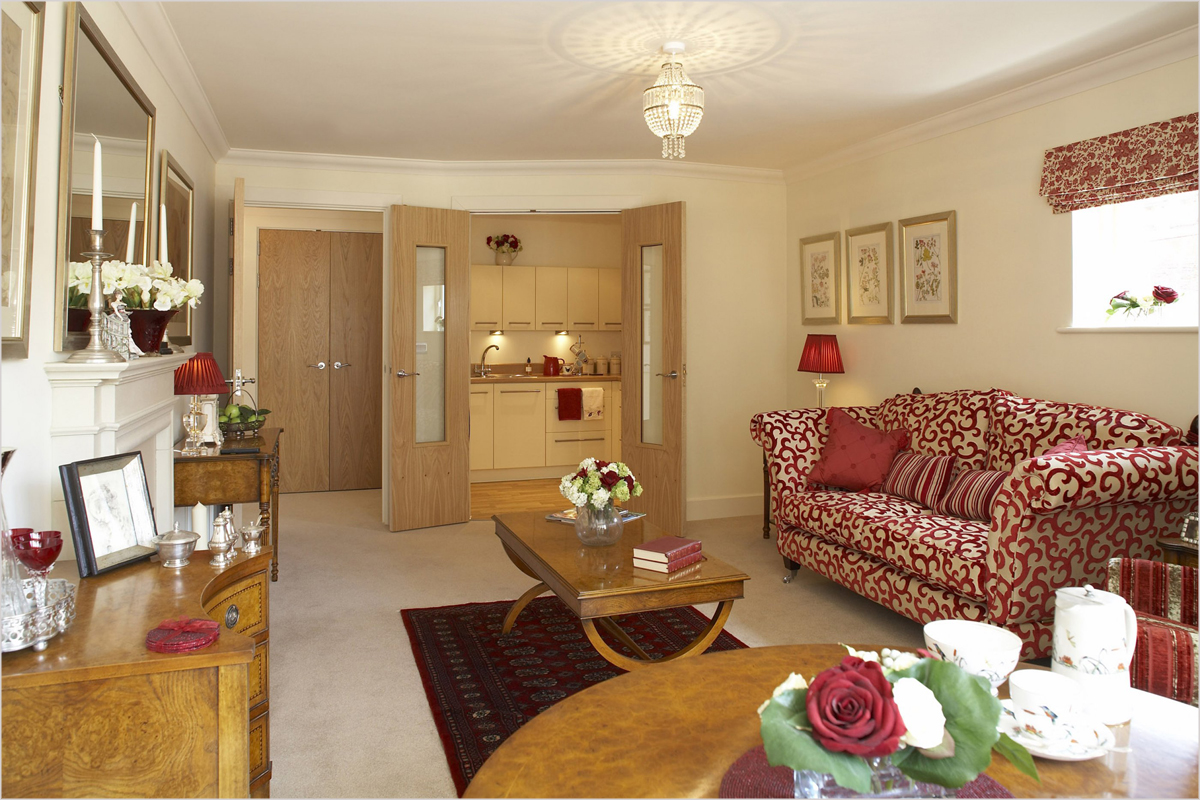 We were then taken up in a smart lift to the first floor, and along a wide carpeted corridor to the accommodation which was an apartment within the care-assisted residence, and this (in fact like the whole experience) exceeded expectations in every way. It was of extremely high quality, in fact I would call it luxurious. A delightful bedroom, an accessible bathroom (equipped with loo seat-raiser and shower chair), a lovely sitting room with TV and a recessed kitchen fully stocked with breakfast provisions. Emergency call buttons were provided in each room (and I rather ruefully observed that one of these at home was long overdue).
We were then taken up in a smart lift to the first floor, and along a wide carpeted corridor to the accommodation which was an apartment within the care-assisted residence, and this (in fact like the whole experience) exceeded expectations in every way. It was of extremely high quality, in fact I would call it luxurious. A delightful bedroom, an accessible bathroom (equipped with loo seat-raiser and shower chair), a lovely sitting room with TV and a recessed kitchen fully stocked with breakfast provisions. Emergency call buttons were provided in each room (and I rather ruefully observed that one of these at home was long overdue).
After our arrival, one of the domiciliary care managers came to the apartment to complete the check-in and go through my mother’s requirements in some detail. The attitude was knowledgeable and caring, sympathetic but never patronising. We then took a tour around the fabulous spa with its hair salon, dance studio, gym, pool and treatment rooms.
I left feeling absolutely certain that my mother was in safe hands, and with a lightness of step that meant that I too could relax for the first time in what felt like quite a while.
Each evening I called and was delighted to hear stories of other residents, delicious food, unobtrusive care and interesting activities. The first two days were quiet, and she had to be coaxed down to the restaurant to eat her meals, having preferred to eat in her apartment initially. But as the week progressed, she grew stronger and bolder, and began to join in.
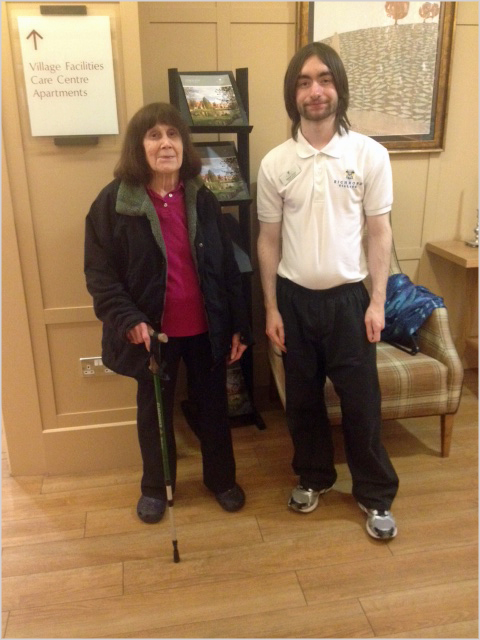 From an escorted trip to the river and nature reserve, to art, crafts and even hand bell ringing (hand bells – now that was something completely unexpected!), there was always something new to talk about. Also sitting tai chi which provoked this observation in her diary as a former practictioner: “Magical magical tai chi; I had forgotten how beautiful you are; your flowing movements, seemingly floating on the breath. Ten or so older students doing very well indeed. A very young man, named Steve demonstrating at the front – he is good”.
From an escorted trip to the river and nature reserve, to art, crafts and even hand bell ringing (hand bells – now that was something completely unexpected!), there was always something new to talk about. Also sitting tai chi which provoked this observation in her diary as a former practictioner: “Magical magical tai chi; I had forgotten how beautiful you are; your flowing movements, seemingly floating on the breath. Ten or so older students doing very well indeed. A very young man, named Steve demonstrating at the front – he is good”.
There were twice daily visits to the restaurant where she feasted like a king, the food being praised as nourishing, tasty and imaginative, and new acquaintances were made.
A week later I returned to find that a virtual transformation had taken place. My mother looked healthy and happy; her walking frame which had been essential a week earlier had been replaced by a single walking stick, and even that was being discarded for short distances. She had befriended Steve, the tai chi instructor and enjoyed his excellent classes, and she was ready to return to independent living at home with the trauma of her fall fading into a distant memory.
Upon her return home (and the immediate installation of an Age UK personal alarm system), I reflected how lucky we were that she had survived the initial ordeal, but more importantly how Richmond Retreats had been such a critical part of her recovery and journey back to normal life. I simply cannot recommend it more highly for older folk needing a week of respite or convalescence. And for carers who themselves need a week off duty, but in the certainty that the people they care for are in safe and professional hands.
As I packed up my mother’s belongings at Letcombe Regis, I noticed that a couple of the paracetamol had been used from her packet. I enquired as to when she had needed them – was it one of the bruises from the fall that had given her pain? An unexpected twinge in the night? “Oh no” she replied, it was my shoulder ache from ringing those hand bells!”.
